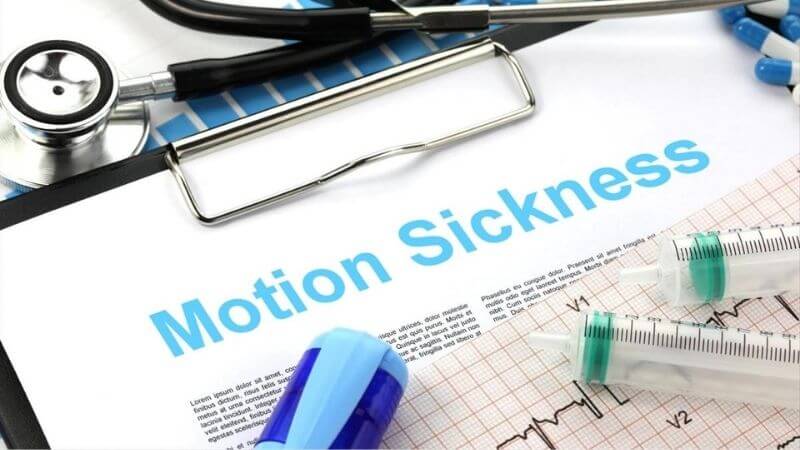Motion sickness is a very prevalent issue. Many people in your identity will experience issues like nausea and vomiting while traveling. Although motion sickness is rarely a major issue, it might divert our attention away from more essential tasks or put us in a bad mood.
Is Motion Sickness A Disease?

Motion sickness is not a medical condition. During travel, some people experience this problem because their brain receives distinct messages from their nose, ears, skin, and eyes. Scientists believe that as soon as they receive this signal, their neurological system becomes confused. As a result of the brain’s inability to comprehend the situation promptly, motion sickness symptoms begin to appear.
Symptoms Of Motion Sickness
Motion sickness manifests itself in a variety of ways, including nausea, vomiting, and anxiousness.
- cold
- sweating
- pale skin
- Excessive salivation in the mouth
- shortness of breath
- headache
- being overtired
How Common Is Motion Sickness?

Motion sickness is a common occurrence. This can occur when traveling by bus, rail, vehicle, plane, or ship. According to the National Institutes of Health in the United States, one out of every three people is susceptible to motion sickness. This is a condition that affects more women than males. It is particularly common during pregnancy and menstruation.
Migraine sufferers are also more likely to experience motion nausea. There’s also a chance you’ll get a migraine if you’re motion sick.
Children between the ages of 3 and 12 are prone to motion sickness. Its occurrence decreases as we grow older.
Tips To Overcome Motion Sickness

- Do not go on an empty stomach: Traveling without eating can result in vomiting. It’s also possible that you’ll feel dizzy. It is always a good idea to travel after a good meal.
- Avoid sitting in the rear seat: Sitting in the back seat of a vehicle, such as a bus, increases the sensation of speed, which can trigger motion nausea.
- Avoid traveling in a crowded vehicle: Being in a crowded vehicle can make you feel anxious.
- While traveling, avoid reading books: Reading anything while traveling can contribute to mental confusion, which can lead to motion sickness.
- Keep cloves, lemon, and basil on hand: Roasted cloves might help you avoid nausea and anxiousness. It’s also a good idea to chew basil leaves while traveling. Keep a bottle of lemon-mint water with you so you can smell a ripe lemon peeling if you get sick.
- Close your eyes and take a nap: It is beneficial to close one’s eyes at night or aboard a ship without windows or to take a sleep if possible. The input conflict between the eyes and the inner ear is thus resolved.
- Chewing is an easy way to relieve common and mild vehicle nausea. It has an extraordinary ability to alleviate vehicle sickness in individuals who are susceptible. Chewing gum is available for purchase online in a range of flavors. However, chewing gum isn’t the only way to treat moderate car sickness symptoms. Snacking on sweets or simply chewing, in general, appears to reduce the negative consequences of the vision-balance conflict.
Next time whenever you are traveling, follow these tips and you will get relief from motion sickness. Share this article with your friends and family to make them aware of it.
Follow Us: Facebook | Instagram | Twitter |
Entertales is on YouTube; click here to subscribe for the latest videos and updates.














